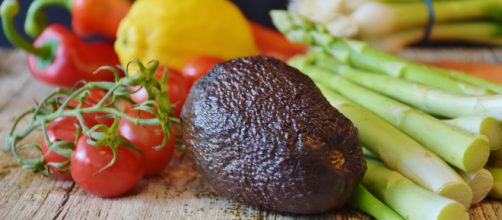Low Carb diets are very popular. Whether you are doing the Atkins diet, living the Keto lifestyle, or just trying to cut back on the daily carbs you consume, there are key principles to follow in order to be successful. Here are the top five tips that will help you low carb efficiently and help you lose weight more effectively.
1. Count your daily carbs
When following a low carb diet there is no need to count your calories, but you do need to count the carbs you consume daily. It is not enough to simply cut high carb foods, such as bread, pasta, and baked goods from your diet.
At the very start of a low carb diet, it is recommended by Dr Atkins (the creator of the Atkins Diet) to limit your carb intake to only 20 grams a day. If you don't do this, you will find that although you lose weight at the beginning of your low carb diet, you will eventually come to a plateau and the weight loss will come to a halt. Being vigilant is important when it comes to your carb counting and ensuring that you eat 20 grams of carbs a day (nothing more and nothing less). You gradually increase this 20 gram limit by five grams every week or so, once you are close to your target weight.
2. Total carbs vs. net carbs
There is some confusion amongst the low carbing community as to which carbs to count.
Total carbs are the number of carbs plus the fiber content. Net carbs are the number of carbs minus the fiber. In the UK, food packaging shows the Net Carbs under the carbohydrate section. There is no need to deduct the fiber. The US and other European countries have the total carbs printed on their food packaging, so you have to calculate the net carbs yourself by subtracting the fiber content. For a low carb dieter, it is the net carbs that are to be counted.
3. Dealing with sugar cravings
When on any kind of a diet or healthy eating regime, sugar is often the first thing to be reduced or completely eliminated. It's understandable as sugar has no nutritional benefit but yet is high in calories.
Medical studies have found that the high consumption of sugar can lead to all sorts of health problems; bad teeth, liver disease, negative impact on blood glucose which can lead to insulin resistance, which in turn can lead to diabetes -- the list goes on. However, living without sugar is difficult for most people and maybe even impossible for others.
When on a low carb diet the need to eliminate sugar is more important than ever, as failure to do so will stop the body from going into Ketosis (the fat-burning mode), according to a study cited on WebMD. If you have a sweet tooth you can enjoy a treat every now and again, even while low carbing, by using natural products such as Erythritol and Stevia as sugar substitutes in your baking.
These products have zero carbs and calories so they don't impact your blood glucose levels and are perfect for a low carb dessert.
4. Eating vegetables
When you have eliminated high carb foods from your diet, you are left with protein, some fruit (mostly berries) and vegetables. Low carb meal plans in the Atkins diet and Keto diets include lots of non-starchy vegetables as these are very low in carbs and can be consumed in large amounts. Making sure to eat plenty of vegetables with your meals will fill you up and lead to fewer cravings.
5. Drink plenty of water
It may seem like an obvious point but many forget this simple dieting tip. Drinking six to eight glasses of water a day can not only help keep you well hydrated and refreshed but can also help you lose weight.
It has been cited on Healthline that various Endocrine studies showed that drinking plenty of water can boost metabolism by as much as 30 percent, helping burn more calories. Drinking water before meals can fill you up so you eat less. In terms of a low carb diet, drinking enough water keeps you feeling full, and as you are eating less fiber, drinking plenty of water will help keep your bowels moving regularly.


